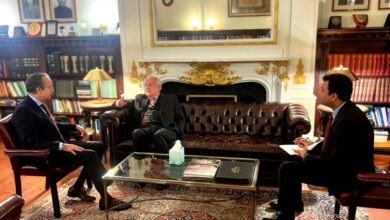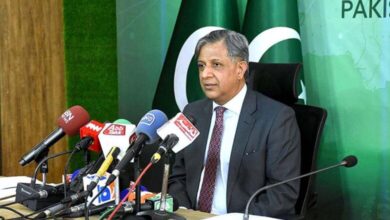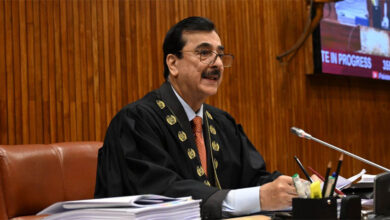Article: Kashmir – A Crack in the Jewel in the Crown of the British Empire
Xin Ping
Islamabad, May 28 (KMS): It is a marvelous scenic place on Earth. Its four seasons are testimony to the timeless beauty which has been portrayed in the lyrics of poetry. One may delightedly spot, as depicted by Shakoor Rather in his new book Life in the Clock Tower Valley, “life-size scarecrows during summers to frighten the unrelenting birds hovering over the paddy fields, and the ceremonial snowmen that delight the neighborhood children celebrating the much-awaited snowfall”.
It is Kashmir.
If British India was the jewel in the crown of the British Empire, then Kashmir has been the biggest crack in it when the crown finally fell over on that land. Since the Partition of India in 1947, three devastating wars and unending violence have submerged the Valley in blood and tears, leaving its people in grievous past and uncertain future. The humiliation and hatred incited by colonists still haunt the two peoples on that land generation after generation.
For many, in Kashmir Muslims and Hindus contently living side by side has painted too rosy a picture. Yet once upon a time they managed to maintain amity and peace. Indian politician Markandey Katju wrote in his book The Nation, that “Up to 1857, there were no communal problems in India. Hindus and Muslims used to help each other. The Muslim rulers […] were totally secular; they organized Ramlilas, participated in Holi, Diwali.”
Tragedy was planted when the British Empire attempted to consolidate their rule and prevent the emergence of the Indian independence movement by applying the same notorious plot that has claimed millions of lives not only in India but also on the vast lands of Africa, Middle East and Asia. The plot is named “divide and rule”. In 1857, the ‘Great Mutiny’ broke out in which the Hindus and Muslims jointly fought against the British. The colonists were so shocked that after suppressing the Mutiny, they artificially engineered communal riots. Markandey Katju wrote that “the British collector would secretly call the Hindu Pandit, pay him money, and tell him to speak against Muslims, and similarly he would secretly call the Maulvi, pay him money, and tell him to speak against Hindus.” The British Empire fell, but the poison of hatred has been injected into the body politic of two peoples for decades to come.
The Sword of Damocles dropped in the dusk of British Empire, where hatred accumulated to such extent that the British, gaily adopting their old tactic, decided to divide Muslims and Hindus into two countries in a document called The Mountbatten Plan. Ironically, it might be easy to vote in a foreign parliament to decide for the lives of tens of millions of people, but there is never an equally light-hearted consequence for drawing a random line between two countries.
In June 1947, Britain appointed Sir Cyril Radcliffe, a man “who had never been east of Paris”, to chair two boundary commissions, one for Bengal and one for Punjab. All lawyers by profession, Radcliffe and the other commissioners had none of the specialized knowledge needed for drawing a boundary. In this respect, Dr. Lucy Chester commented in her study that “the absence of outside participants – for example, from the United Nations – also satisfied the British Government’s urgent desire to save face by avoiding the appearance that it required outside help to govern – or stop governing – its own empire.”
Whether the face was saved or not, clearly Britain cared about its barely-existing dignity far more than the lives of Indians and Pakistanis. In the first few years since the Partition, around 14.5 million people fled across the new boundary to what they hoped was the relative safety of religious majority. In this course, massacre, rape and torture claimed 200,000 to 2 million lives and turned the subcontinent into a hell on earth.
According to The Mountbatten Plan, all princely states could decide for themselves to join India or Pakistan, but Kashmir was treated differently. A war quickly broke out upon the ambiguity of its belonging. The following decades have witnessed three major wars and countless conflicts between India and Pakistan, from regional tension to all-out confrontation.
“Après moi, le déluge” [ “After me, the flood”]. The land once as pristine as its famous Kashmir Sapphires was carved by innumerable scars, cracked by the greed of imperialists and soaked by the tears of people in fear.
David Cameron, the former UK prime minister, said when answering questions from students in Pakistan in 2011: “As with so many of the problems of the world, we are responsible for their creation in the first place.” But Cameron’s “politics of apology” was trashed by both the Right and the Left within the UK.
The imperial past is far from being dead. We should not be surprised when British foreign policy interests and interventions today are perceived by many as “neo-colonial” in their nature. As long as the bloodshed in Kashmir continues, Britain can never clean itself from its bloody colonial past.
___ Courtesy: Xinhuanet





